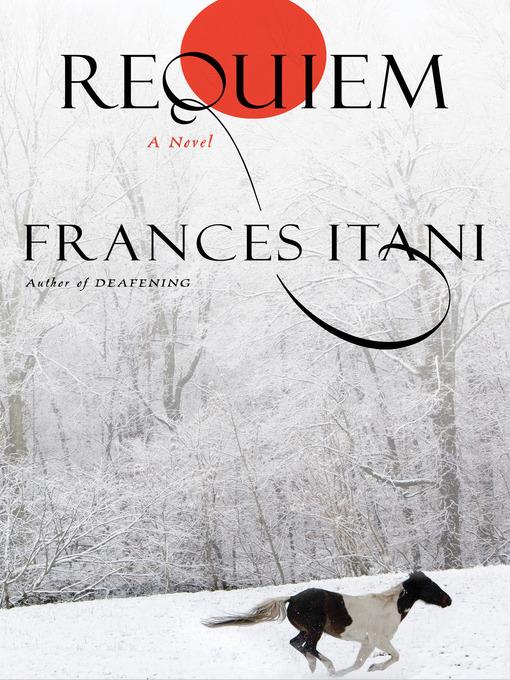
Requiem
A Novel
کتاب های مرتبط
- اطلاعات
- نقد و بررسی
- دیدگاه کاربران
نقد و بررسی

October 15, 2012
In a narrative that alternates between past and present, Canadian author Itani, winner of the Commonwealth Writers' Prize for Deafening, examines the internment of Japanese Canadian citizens during WWII and its impact on one family. In 1997, artist Binosuke Okuma drives from Montreal to the site of the camp on the Fraser River where his family has been interned when Bin was very young, and where his father made a decision that would cut him off from his family--and permit him to fulfill his potential as an artist. But at first memories of Bin's wife, Lena, who died of a stroke, chase him. Accompanied by his dog, Basil, and armed with tapes of Beethoven and a bottle of whiskey, Bin grapples with the anger and silence that swathe his experience of internment and separationâwhich his wife had urged him to address. After learning that his aging father sits in a chair facing the door, waiting for Bin's arrival not far from the location of the Fraser River camp, Bin must decide if he can return to the father who altered his fate, allowing him, he hopes, to keep going, as a son, an artist, a widower, and as a father himself who had built his own family far away from the broken histories buried at the camps. This sparse and melancholy meditation on family, history, and the healing properties of art addresses a little-known chapter in Canada's history, though Itani fails to bring those events and his characters fully to life. Agent: Westwood Creative Artists.

August 1, 2012
Layers of grief and anger surrounding dishonorable events in history are excavated in the new work from a much-garlanded Canadian writer. Itani (Remembering the Bones, 2007, etc.), who has won or been shortlisted for several major prizes, here tackles a national outrage in a skillful if mournful story woven around the experience of Japanese Canadians who, after Pearl Harbor, were labeled enemy aliens and deported from the West Coast to makeshift camps in inhospitable terrain, often at the loss of their livelihoods, homes and possessions. Such was the fate of Bin Okuma's family, shifted from a coastal fishing community to a brutal mountain location. But Bin's wounds run deeper. He is also grieving the recent death of his beloved wife, Lena, and nursing a long-held estrangement from his father who, during camp life, gave young Bin away to their educated, childless neighbor. Now Bin--an artist obsessed with rivers--embarks on a long, lonely road trip across Canada accompanied by his dog, his music and his memories, possibly to visit his elderly father. Itani deftly braids the various timelines, but even the late promise of forgiveness scarcely mutes the darkness of the underlying themes: racism, rejection, the legacy of national and personal pain. Although the plotting and conclusion are simple, this is an undeniably respectful and moving homage to a shameful factual episode.
COPYRIGHT(2012) Kirkus Reviews, ALL RIGHTS RESERVED.

March 1, 2012
During World War II, Canada interned citizens of Japanese descent, just as the United States did. Here, Itani recaptures history through fiction by imagining the story of young Bin Okuma and his family, who were transported from their British Columbia home to a desolate area 100 miles from the "Protected Zone" and only grudgingly given access to food, plumbing, and electricity. Fifty years later, after his wife dies, Bin returns to the area, hoping to find the father whose awful decision at the time nearly destroyed the family. Itani's Deafening won the Commonwealth Writers' Prize and was shortlisted for the IMPAC Dublin Literary Award, so her new novel is one that I'm really anticipating.
Copyright 2012 Library Journal, LLC Used with permission.

July 1, 2012
Japanese Canadian Bin Okuma reflects in fragments on the loves and losses he has alternatelyand sometimes simultaneouslyenjoyed and endured since his family's forced internment in camps during his WWII childhood. Fifty years later, Bin is seeking a kind of redemption after the sudden death of his beloved wife. Driven by an inner force he barely understands yet does not question, although other family members certainly do, he returns to the flashpoint of everything in his life during a journey of geographic and metaphoric importance to the camp and his own biological First Father, whose long-ago decision forever altered Bin's world. Joined by his faithful canine companion and shadowy memories, Bin drives through the Canadian landscape that echoes his formative years and the bitterness he has harbored inside for so long. The gentle voice of his wife flows quietly through his heart and mind, urging him onward to find the peace she always told him was necessary to finally achieve a complete life. Itani's fluid writing (Deafening, 2003) evokes contemplation and satisfaction at the ending, despite the disturbing historical background that frames the story.(Reprinted with permission of Booklist, copyright 2012, American Library Association.)

























دیدگاه کاربران